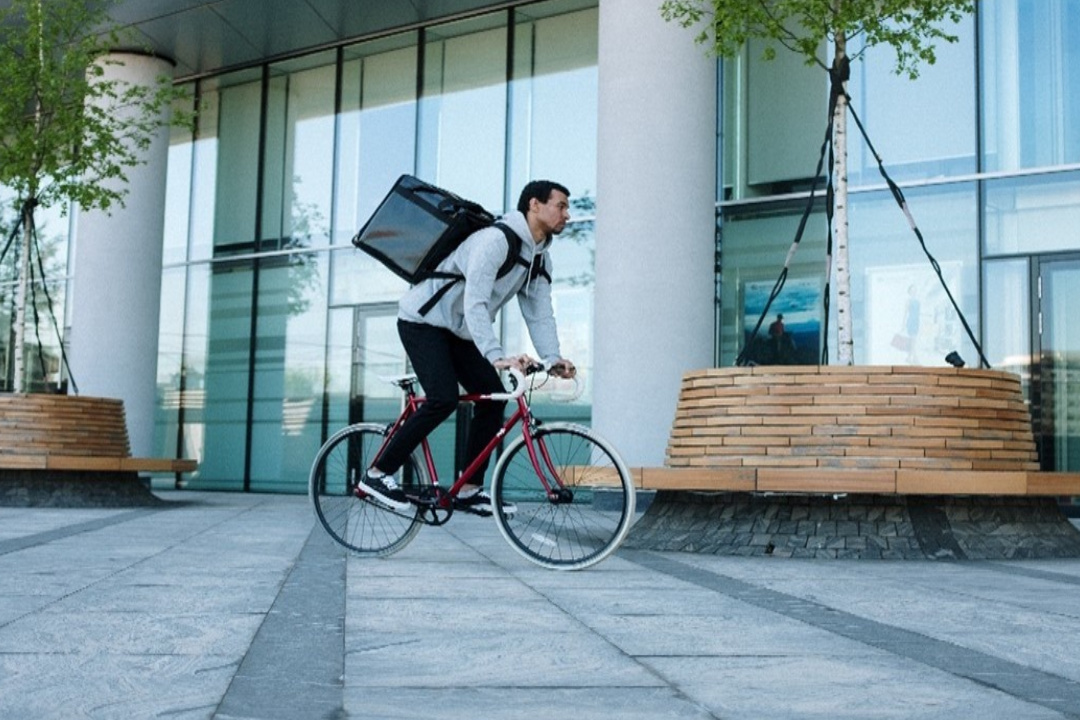The need… the need for speed
Why Q-commerce? let me tell you, there has been no better time in India to bet on the digital consumer segment. There are reliable estimates like RedSeer suggesting 10-15 times growth for the Indian Q-commerce market which is now at $0.3 billion and could surge up to $5 billion by 2025, The pandemic has turned the tables around like never before in favor of this kind of novel business models.
Therefore, the time is ripe for Q-commerce players to go full throttle to grab market share the most by penetrating online grocery which is in single-digits but has the potential for tremendous growth.
Few estimates hint that the Q-commerce share in the total online grocery market will go up from 10% right now to 45-50% max.
The big guns – Swiggy, Blinkit, Zepto, and Dunzo – every one of them is eyeing expanding the dark store’s network to facilitate swift deliveries. Dark stores are nothing but small-sized in proximity to consumer centers that make 10-30 deliveries viable in assigned localities.
Blinkit partnered with 300 dark stores and aims to launch a new store every 4 hours. Swiggy claims to have over 150 seller-run dark stores while its competitor Zepto got hold of 100 dark stores each equipped to deliver over 2,500 orders per day. As per reports, things will get even bigger, even faster.
Game of Thrones
Plenty of investors are more than willing to pour huge chunks of capital into q-commerce companies with plans for an ambitious expansion. Swiggy bagged massive $700 million funding from Invesco at a $10.7 billion valuation and has set it aside for its Instamart business. Instamart claims to have 2 million users across 18 cities and delivers over a million orders per week.

Zomato, reportedly considering a $500 million investment to power up its q-commerce growth with Blinkit, in which it holds over an 8% stake. And it delivers over a million orders across 12 cities with plans for aggressive expansion.
Dunzo recently obtained an investment of $200 million from Reliance Retail. It plans to extend its Dunzo daily to over 25 locations in the upcoming year with the expectation of Q-commerce to contribute around 70% of its total revenues moving forward.
Dunzo recently obtained an investment of $200 million from Reliance Retail. It plans to extend its Dunzo daily to over 25 locations in the upcoming year with the expectation of Q-commerce to contribute around 70% of its total revenues moving forward.
Zepto is valued at $570 million bagged with a collective investment of $160 million and is experiencing new 100,000 app installations every week as per reports. With the plans to extend their services beyond groceries to include emergency products such as medicines going ahead.
Even Ola has entered the game with Ola Dash offering a wide range of products and plans to pump up the dark store numbers from 200 to 500 within the next 6 months.
With the digitization of daily purchases on the rise all these companies and those are coming are expected to remain bullish with Indian purchase behaviors aligning in their favor, the future looks brighter than ever for the Q-commerce industry.
Haste Makes Waste
This ultra-fast delivery module could get dangerous considering the accident-prone roads of India if unregulated. Ten Minutes delivery being their USP company will pressurize bikers to meet the deadlines which put certain lives at risk considering most roads even in cities are filled with potholes, cattle, and frequent traffic. These factors are a great challenge for motorists, and could even lead them to violate traffic rules to avoid reprove.
Last year it was reported that on its roads for every four minutes India had a death. More than 150,000 lives perished in road accidents every year. This is hugely concerning.

Several drivers working for these Q-commerce firms have reported that they often faced a lot of pressure to meet their delivery deadline, which led them to speed, for inhibition of being reprimanded by store managers.
Even though food and groceries are essential they are not emergency items. Why are we putting lives in danger for?
There were incidents where delivery bikers skip traffic signals, ride on the wrong side of the lane hurrying to deliver orders, and met with accidents while doing so with some even sustaining injuries. Many accidents happen and go unreported.
As the 10-minute delivery is gaining popularity, delivery agents are putting their health on the line by pulling 10-12 hours shifts. With depleting incomes, ever-increasing fuel prices add even more pressure on their already overburdened lives.
Virtue of Patience
All good things come to those who wait! And how did we forget this?
Why do we feel the need to get things so fast? Even though our culture holds patience as one of the highest virtues yet we are moving towards impatience. First, there were only emergency services like ambulances, and the fire brigade was the only fast service. But now everything from foods, goods, and beverages to education everything needs to be fast, people crave instant gratification. why is that?
With Q-commerce, people rave about the merits of how it made their lives easier, but what baffles me is how blatantly they refuse to see the downside that comes along.
For our own benefits, we are putting human lives at risk here to appease our instant gratification, or maybe laziness. I’m okay with the fact certain things are of a dire need for example medicines but why do we need bread and butter within 10 minutes?
Yes, it’s their job, you pay for it and all that’s fair, but we, the impatient created the need for this kind of high-risk job when we fail to get even our essentials in order.
By that, we send innocent, hardworking, yet desperate lives into harm’s way. It’s not ethical to exploit a fellow human being just because of his life situation for our own gratuitous needs.

It is that fundamental belief: We are all brothers and sisters — that makes this civilization work. We’re all responsible for one another. So let us be Socially responsible. Let us do business that is socially responsible. Let’s take responsibility.
Now let me be clear, in the future I’m sure that innovations like drones and robots will help us to provide these ultra-fast delivery services. Till then, let’s have respect, let’s value human lives so as not to take their services for granted.
In the end, that’s what this big question is about. Do we participate in a lifestyle of greed or do we participate in a lifestyle of patience? Your answer doesn’t matter whether you’re a consumer or a CEO of a Q-commerce company, will change the future. Believe me, it’s a valuable future. Your single decision can make an incredible change in the lives of millions. You hold the key; you can set them free!
Let’s make a future, let’s make business, more responsible!
Source: LinkedIn




